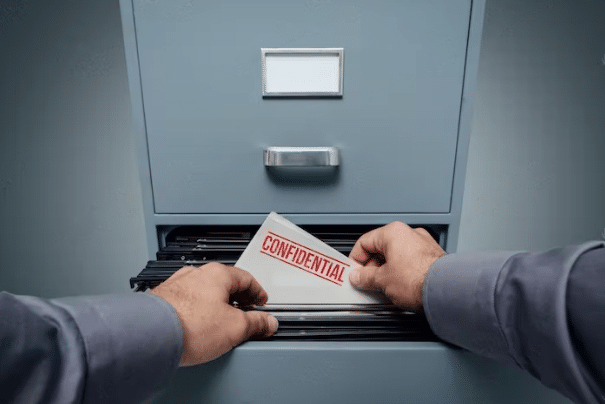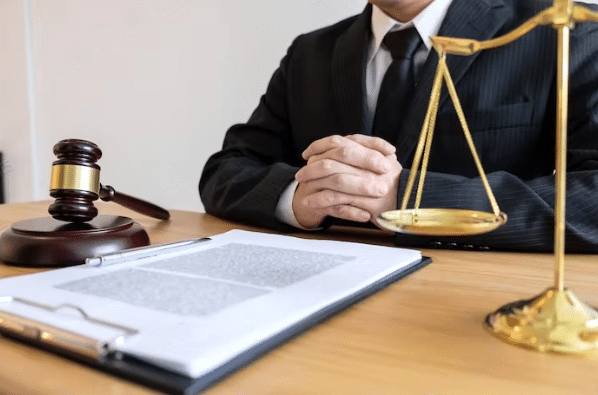
Legal advice privilege refers to the principle that lawyers should be able to keep confidential the information they provide to their clients. This privilege allows lawyers to keep their client’s secrets safe and prevents third parties from learning what kind of legal advice the client has received.
The privilege is often invoked when a lawyer gives legal advice in court or during a negotiation. In some cases, the privilege may also apply when a lawyer is assisting outside of court, such as by providing financial advice.
Legal Advice Privilege vs Litigation Privilege
When discussing privileges, it is important to first understand the difference between a legal advice privilege and a litigation privilege.
The legal advice privilege is based on the principle that attorneys should be free to give their clients legal advice without fear of retribution. This privilege applies to communications between an attorney and their client, as well as any documents prepared in connection with that communication.
The litigation privilege is based on the idea that courts should be able to keep proceedings private in order to protect the parties involved from embarrassment and possible harm. This privilege applies not just to formal court proceedings but also to informal discussions between lawyers and their clients.
The difference between these two privileges is that legal advice privilege only applies to communications with an attorney, while litigation privilege applies to any communication during litigation.
What does ‘litigation’ mean?
What does the word “litigation” mean? The Oxford English Dictionary defines litigation as: “a legal process in which a claim or dispute is brought before a court or other tribunal to achieve a settlement.”
Litigation is a legal process in which one party, the plaintiff, brings a lawsuit against another, the defendant. Litigation is often used for civil disputes or criminal charges. The parties involved in litigation are called litigants.
Litigation can be divided into two broad categories: private and public. Private litigation is typically between two people or organizations, while public litigation takes place between a government and an individual or organization.
In layman’s terms, litigation is simply a way to resolve disputes between parties.
What Is Covered By Legal Advice Privilege?
Legal advice privilege is a legal principle that protects communication between attorneys and their clients from disclosure to third parties. The doctrine applies to consultations, communications during representation, and filings in connection with legal proceedings.
Legal advice privilege covers a wide range of information, including facts about the client’s case, strategies employed by the attorney, and discussions regarding alternatives to litigation. The doctrine generally applies to communications between an attorney and their client that are confidential and necessary for the effective representation of the client.
The privilege is not absolute; some disclosures may be required in order to protect the public interest or justice. Attorney-client communications not protected by the privilege may be subject to discovery by a party in a lawsuit or other legal proceeding.
Purpose Of Legal Advice Privilege

The purpose of the legal advice privilege is to protect a lawyer’s professional and confidential relationships with their clients. The privilege allows a lawyer to refuse to disclose information that would reveal the identity of their client or would otherwise harm their client’s interests. The legal advice privilege can be invoked in criminal, civil, and administrative proceedings.
Moreover, this privilege encourages clients to speak freely with their attorneys without fear that valuable information will be disclosed to an opposing party in litigation or that it will be used against them in some other way.
Sharing Privileged Documents
When a person seeks legal advice, they may share privileged documents with their lawyer in order to receive the best possible counsel. However, should the lawyer then offer their services to the client outside of the legal setting, is it permissible for them to continue to hold onto these documents?
Legal advice privilege is a common law privilege that protects communications between an attorney and their client. The protection extends to the client’s family, other advisors, and even the client’s children.
Some legal advice privilege documents can be shared with third parties if they are in the best interests of the client. The lawyer must have a good faith belief that the disclosure is necessary to prevent a crime, fraud, or other injustice.
There are some exceptions. For example, if the document is privileged and obtained from someone other than the client, it will not be privileged.
In some cases, it may be advisable for a person to keep their privileged documents confidential even after they’ve parted ways with their lawyer. If this is something you’re considering, speak with an attorney to ensure that your specific situation is covered under legal advice privilege.
Exceptions To Legal Advice Privilege
Lawyers are typically considered to be fiduciaries, which means that they are entrusted with confidential information. This trust is warranted because lawyers have a duty to their clients to keep their information confidential.
However, there are some limitations. For example, if a lawyer discloses information in the course of representing someone else in a legal proceeding, they may not invoke the attorney-client privilege.
The legal advice privilege allows for the disclosure of privileged communication when there is a need for an additional party to have access to such information. This exception applies when the privileged communication will provide evidence in a criminal prosecution or civil suit or when it’s necessary for a judge to provide fair adjudication of the case.
Additionally, if a lawyer is subpoenaed to give testimony in a criminal or civil trial and the testimony would be favourable to their client, they may still invoke the attorney-client privilege even if they are not named as an attorney in the case.
Waiver And Loss Of Privilege

Legal advice privilege is a type of privilege that can be waived. It is a common misconception that the legal advice privilege cannot be waived. However, it can be waived if the client and attorney agree or if the client discloses information to someone else.
The waiver and loss of legal advice privilege can occur in many ways, such as when an attorney discloses information to a third party without obtaining consent from their client when a confidential communication is disclosed to an unprivileged person, or when there is an agreement between the attorney and client that allows for disclosure of privileged communications.
When a person waives their right to legal advice, this privilege generally remains in place until the waiver is withdrawn. However, there are certain situations in which a waiver can be lost. If a lawyer is retained by someone who has waived their right to legal advice and provides legal advice to that person without obtaining written consent from the client, then the lawyer may have violated the client’s trust, and the privilege may have been lost.
Additionally, suppose a criminal defendant decides to represent themselves in court without first consulting with an attorney and use material that was obtained during interviews with law enforcement officials without first getting authorization from those interviewed. In that case, this, too, could lead to a loss of privilege.
The Loss Of Confidentiality Will Lead To A Loss Of Privilege
The loss of confidentiality will lead to a loss of privilege.
Legal advice privilege is an important legal protection for attorneys and their clients. When confidential information is shared between the attorney and client, the attorney-client relationship is strengthened, and the client can receive better legal representation.
If the confidential information becomes public, the attorney could be subject to disciplinary action or sued. Therefore, attorneys need to protect their client’s confidentiality.
Conclusion
The legal advice privilege is arguably the most important of all privileges because:
- This privilege applies to any communication made in confidence by one party to another where both seek legal advice or counsel.
- Legal advice privilege is a legal principle that protects communication between lawyer and client from outside interference or scrutiny.
- This privilege is applicable in both civil and criminal proceedings and typically applies to confidential communications between the lawyer and the client.
- Legal advice privilege can be waived by the client if they choose to share the information with third parties, but this decision should be made in consultation with a qualified attorney.
FAQs
What are the three main privileged communications?
The three main privileged communications are attorney-client, doctor-patient, and clergy-penitent.
Attorney-client privilege is the legal term for confidentiality that applies to communications between an attorney and the client. The privilege is intended to encourage clients to make full disclosure to their attorneys in order to obtain legal advice.
Doctor-patient privilege is a type of professional privilege that applies when a physician discusses a patient’s medical care with that patient.
Clergy-penitent privilege refers to the right of a minister or priest (or another clergy) not to testify in court about what they have heard during confession or other confidential communication in their role as a spiritual advisor.
What documents are legally privileged?
Privileged documents are those which are legally protected from disclosure to third parties. These documents can be in the form of legal advice, medical records, or business records.
Privileged documents can be used to impeach or contradict the testimony of other witnesses and may even be used to prove the guilt or innocence of a party. Documents are legally privileged if they are prepared in anticipation of litigation and fall into a few categories, such as statements made in preliminary proceedings or declarations of fact.
Certain documents can be shielded by either the First Amendment or state secrets privilege, which allows government officials to keep information secret that could harm national security or public morale.
Are emails privileged communication?
When it comes to emails, there is a lot of confusion about whether they are privileged or not. But the reality is that emails are not privileged communication. Emails can be used as evidence in a court of law and can be made public if the sender does not put any restrictions on them.

